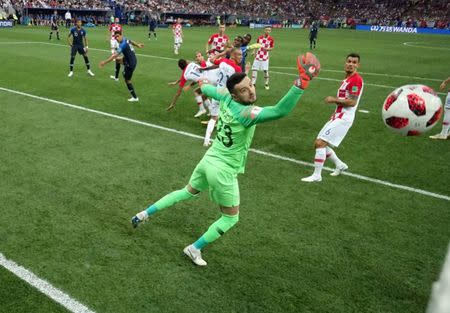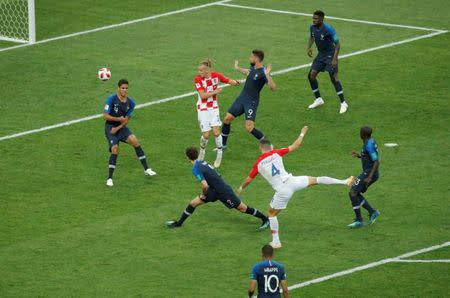A World Cup win - in logistics and safety
By Lauren Young
When France beat Croatia 4-2 in the 2018 World Cup final in Moscow, it marked a second triumph for the French, and the culmination of more than 18 months of planning by Reuters to cover the world's biggest sporting match.
The Summer and Winter Olympics feature more events and require a larger reporting budget, but the sheer size of Russia and its 11 host cities - from the exclave of Kaliningrad in the west to Ekaterinburg in the east - made the month-long World Cup tournament the most complex sporting event to cover logistically in the history of Reuters, said Declan Niall, editorial logistics manager for Reuters in Europe and the Middle East.
"It required us to be very nimble on the ground," he added.
The logistics included figuring out accommodation and travel for 140 members of the Reuters staff, including about 25 writers, 44 photographers, 32 video journalists and 14 members of the broadcast team.
To deliver coverage from the 64 matches in 12 venues along with hundreds of stories from dozens of team base camps, Reuters staff stayed in more than 3,200 hotel rooms, flew on 750 flights and took at least 50 train trips.
All of that travel went off without a hitch, Niall said. Reuters journalists typically arrived two days ahead of time to cover training and news conferences before each match. Rather than driving private cars or taking taxis in traffic-clogged Moscow, our reporters used the ultra-efficient Metro to get to matches and press events.
Extra measures were taken to ensure news and data remained safe from hackers. For the first time, Reuters implemented cyber security measures, briefing all its journalists involved with World Cup coverage on information security risk management. “Clean” laptops loaded only with programs essential to covering the tournament kept the chance of a software breach to a minimum.
To make it easy to immediately connect with other Reuters journalists, the staff also received an iPhone pre-programmed with each colleague's Russian contact information.
The phones were also equipped with Mojo, a proprietary app Reuters uses to capture and deliver breaking news as video and photos. When a taxi hit pedestrians near the Kremlin on June 18, photographers were able to shoot video until our TV crew arrived on site. https://reut.rs/2lfK7qg
Reuters reporting teams based in each city along with some far-flung training bases were the backbone of its World Cup coverage. As the tournament progressed, countries were eliminated and host cities closed, the Reuters staff slimmed down. By the time France became world champions, a much leaner group of 40 Reuters journalists - including locally based staff - were left to cover the final at Luzhniki Stadium.
On Monday, the remaining Reuters journalists headed back to London after more than a month abroad.
"I missed my birthday, Father’s Day, one daughter's birthday and four school Sports Days while I was here, and I was not by any means the only one," said Reuters Global Sports Editor Ossian Shine. "It has been a wonderful Reuters effort and a great World Cup, but I think we are all ready to go home now."
(Reporting by Lauren Young; Editing by Bill Rigby)

 Yahoo Sport
Yahoo Sport 








































